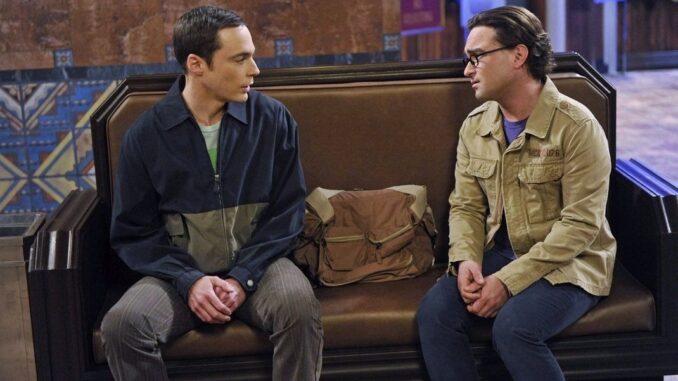
In the long-running and much-loved sitcom The Big Bang Theory, Johnny Galecki’s Leonard Hofstadter often found himself at the receiving end of jokes, mischief, and outright neglect. Despite being one of the most caring and relatable characters, Leonard’s struggles and shortcomings were often exaggerated for comedic effect, making him a symbol of unfulfilled potential and perpetual mistreatment.
While other characters grew and achieved remarkable feats, Leonard remained largely the same—a loyal friend with low self-esteem and a long list of insecurities. This consistency, while endearing to fans, highlighted how much he deserved better treatment from those around him.
Leonard’s Struggles with Friends and Family
Leonard’s friends were, at times, more tormentors than companions. His roommate Sheldon Cooper was an unrelenting source of irritation, devising clever ways to annoy Leonard with pranks like hiding bugs in his food or forcing him to wear an uncomfortable sweater. Sheldon’s rigid, self-centered personality often made Leonard’s daily life difficult, turning his apartment into a psychological minefield.
Leonard also faced constant reminders of his perceived inferiority. The writers frequently joked about how Penny, his love interest and later wife, was “too good for him,” and his professional accomplishments were often dismissed compared to those of his friends. These jabs, while played for laughs, often reinforced Leonard’s insecurities, making viewers sympathize with him even more.
One of the most heartbreaking aspects of Leonard’s story was his relationship with his mother, Beverly Hofstadter, a cold and hypercritical psychologist. Beverly’s dismissive and unloving attitude often left Leonard seeking validation, which he rarely received. Despite his best efforts, Leonard was constantly subjected to her cutting remarks, highlighting the emotional void in their relationship.
Why Leonard’s Shortcomings Made Him Relatable
Unlike some of the other characters who experienced tremendous personal growth, Leonard’s struggles with low self-esteem and insecurities persisted throughout the series. While this could be frustrating, it also made him one of the most relatable characters. He wasn’t a genius like Sheldon or a success story like Howard or Raj; he was simply a well-meaning, hardworking person trying to navigate life’s challenges.

This authenticity struck a chord with fans. Leonard’s flaws and vulnerabilities were a reminder that not everyone’s journey is marked by significant milestones or dramatic changes, and that’s okay.
A Satisfying Ending for Leonard (and the Elevator)
While Leonard’s journey was often tinged with disappointment, the series finale gave him—and fans—a small but satisfying moment of closure. Johnny Galecki had expressed his wish for the broken elevator, a long-running gag in the series, to be fixed in the final episode. This wish was granted, with Penny announcing the elevator’s repair.
The moment symbolized more than just a repaired piece of machinery; it was a metaphor for resolution and progress, no matter how small. For Galecki and his fans, it was a fitting way to mark the end of an era.
Off-screen, Johnny Galecki has enjoyed immense success thanks to the show, becoming financially secure and widely recognized for his work on one of television’s most iconic sitcoms.
Leonard: The Underrated Heart of the Show
Despite the mistreatment Leonard endured, his character remains a fan favorite. His relatability, kindness, and perseverance in the face of constant challenges made him the emotional anchor of the series. Leonard’s story reminds us that even the underdogs can shine brightly, even if they don’t always get the recognition they deserve.